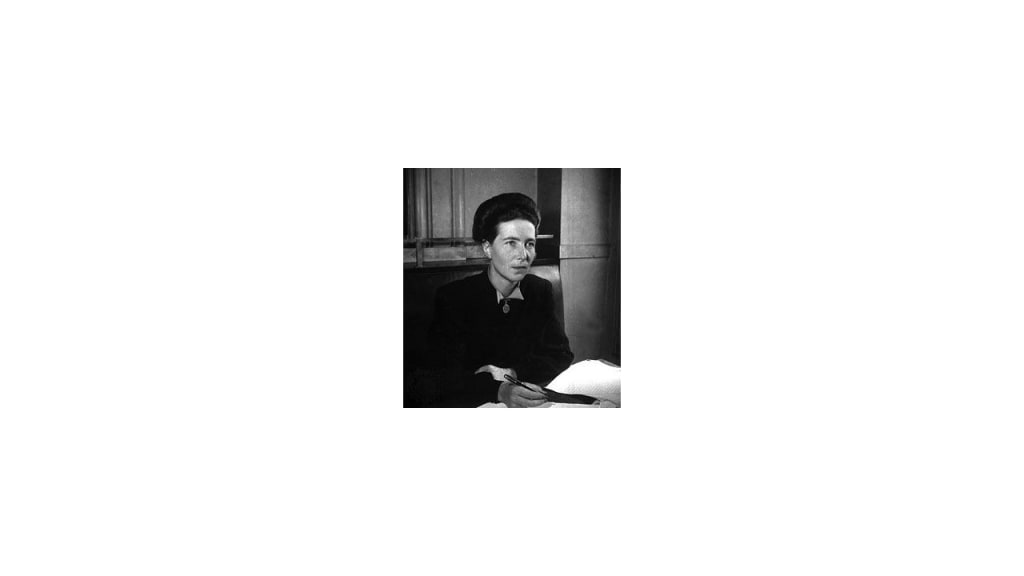
De Beauvoir, Simone-Lucie-Ernestine-Marie (born January 9, 1908, died April 14, 1986, Paris). Member of the intellectual group of philosopher-writers who have given the topics of existentialism a literary reproduction is a feminist writer from France.
One of the initial sources of inspiration for the women's liberation movement activists was her seminal book, "The Second Sex." It is divided into two volumes, "Facts and Myths" and "Lived Experience." But Simone de Beauvoir did not first identify as a feminist.
Liberation Through Socialist Struggle
Simone de Beauvoir refuted any connection to feminism in her 1949 book, "The Second Sex." Like many of her friends, she believed that rather than a women's movement, socialist development and class struggle were necessary to address society's issues.
Revival of Feminism
De Beauvoir observed that socialism growth had not made women's lives better in the USSR or in China than they were in capitalist nations as the resurrection and reinvention of feminism grew during the 1960s. Even though Soviet women held occupations and positions in the government, they were invariably the ones taking care of the children and the household at the conclusion of the workday. She saw that this was a reflection of the issues that American feminists were discussing around housewives and women's "roles."
The Need for a Women's Movement
In a 1972 interview with the German journalist and feminist Alice Schwarzer, she declared that she really was a feminist. She called her earlier rejection of a women's movement a shortcoming of ‘The Second Sex’. She also said the most important thing women can do in their lives is work, so they can be independent. Job was not perfect, nor was it a solution to all problems, but it was the "first condition for women's independence.
She also proposed the idea that women could not be really freed until the patriarchal social structure was itself dismantled. Yes, women needed to be freed on their own, but they also needed to struggle with the working class and the political class. Her viewpoints agreed with the maxim "the personal is political."
She also famously said that because of what they have been educated and socialized to do, women are different from men. Additionally, she claimed that this was just another method for males to subjugate women, telling them that they would be better off remaining in their cosmic, spiritual, and eternal feminine selves, free from knowledge from men and their concerns about labour, careers, and power.
A Return to Enslavement
The idea of a woman's nature seemed like an additional form of tyranny. She referred to parenting as a process that turns women into slaves. because it was advised that ladies should focus on their heavenly essence. Politics, technology, and anything else unrelated to their homes and families were outlawed, forcing them to prioritize motherhood and femininity. The second sex was a tactic used to reduce women to second-class citizens.
Transformation of Society
De Beauvoir became more aware of the everyday sexism women faced thanks to the Women's Liberation Movement. (Some radical feminist organizations disagreed, arguing that no one individual should hold a position of power because hierarchy is a mirror of masculine dominance. Some feminist artists claimed that they were fully cut off from the male-dominated art world in order to be able to truly express themselves. She acknowledged that Women's Liberation had accomplished some good, but she insisted that feminists shouldn't completely reject participating in the world of men, whether in terms of organizational power or through their creative endeavours. According to de Beauvoir, feminism's goal was to change society and how women were viewed within it.
Second Wave of Feminism
With its fundamental thesis that women have consistently held a subordinate status to males throughout history and across cultures, her 1949 book "The Second Sex" can be credited with launching the second wave of feminism. A woman has remained imprisoned and a slave within the tasks imposed by her maternal and reproductive roles, while a man has been allowed to manage his environment, always expanding the sphere of his physical and intellectual victories. She emphasized this subordination and explained how the "essence" of women was actually made. Similar to this, de Beauvoir emphasizes the underlying asymmetry between the "masculine" and "feminine" in the preface to "The Second Sex." The "absolute human type," often known as the norm or standard of humanity, is thought to embody masculinity. Humanity is therefore a male-dominated species, and man defines a woman in relation to him rather than as an autonomous entity.






Comments
There are no comments for this story
Be the first to respond and start the conversation.